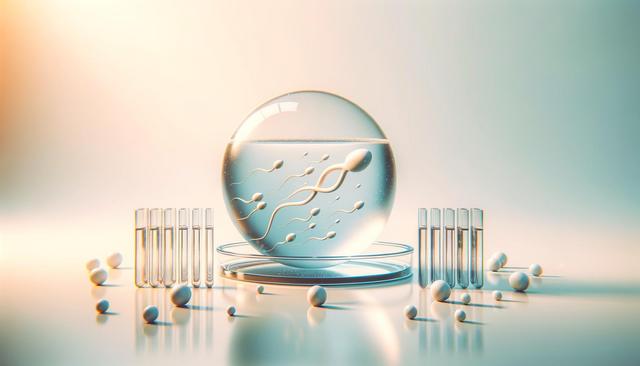What It Means to Be a Sperm Donor
Choosing to become a sperm donor involves more than just a medical procedure; it’s a commitment to helping individuals and couples build the families they’ve always dreamed of. A sperm donor provides genetic material that can be used by those facing fertility challenges, single parents by choice, or LGBTQ+ couples. The role of a donor is both generous and meaningful, requiring careful consideration of the long-term implications.
Before beginning the process, potential donors must undergo a series of screenings to ensure they meet specific health and genetic standards. These evaluations typically include:
- A thorough medical history review
- Genetic testing for inherited conditions
- Infectious disease screening
- Psychological evaluation
These steps are not only necessary for protecting the health of the recipient and future child but also help the donor understand the full scope of their decision. By meeting these criteria, a sperm donor ensures a safe and ethical contribution to someone’s journey toward parenthood.
The Process of Donating Sperm
The actual donation process is straightforward but involves multiple visits and a level of commitment. Most sperm banks or fertility clinics require donors to make several donations over a period of time. This helps ensure a sufficient supply of viable sperm and allows for consistent sample quality.
Each visit typically includes:
- Providing a semen sample onsite
- Abstaining from ejaculation for 2-3 days prior
- Completing a brief health questionnaire
After collection, the sample is frozen and quarantined for several months. During this time, the donor is re-tested for infectious diseases to confirm the sample is safe for use. Once cleared, the sample may be offered to individuals or couples seeking donor sperm. A sperm donor may never meet the recipient or resulting child, depending on the terms of the agreement, but their contribution can have lifelong significance.
Legal and Ethical Considerations
There are important legal and ethical elements involved in becoming a sperm donor. In most cases, donors sign contracts that relinquish their parental rights and responsibilities. This legal protection is crucial for both donors and recipients, ensuring that expectations are clear on all sides.
It’s essential for a sperm donor to understand:
- They will not be financially responsible for any resulting children
- They generally will not be involved in the child’s life
- Their anonymity or identity disclosure depends on local laws and donor agreements
Some countries have laws that allow donor-conceived individuals to access identifying information about their donor once they reach a certain age. This is a vital consideration for donors who may be contacted in the future. Ethical sperm donation includes transparency, informed consent, and a willingness to accept the potential long-term outcomes of the donation.
Motivations Behind Sperm Donation
People choose to become sperm donors for various reasons, and understanding these motivations can offer insight into the importance of the role. Common reasons include:
- Wanting to help others start a family
- Personal experiences with infertility among friends or family
- Financial compensation
- Altruistic desire to contribute to society
While compensation can be a motivating factor, the decision to donate sperm often comes from a deeper desire to make a difference. Many donors find fulfillment in knowing they’ve helped others achieve parenthood, even if they remain anonymous. Those considering this path should reflect on their intentions and ensure they are comfortable with the possible outcomes.
In some cases, donors may also support open donation, where future contact with donor-conceived individuals is possible. This approach is becoming more common as society embraces openness about donor conception. A sperm donor who is open to this possibility should be prepared for future connections and the emotional aspects that may come with them.
Life After Becoming a Donor
After completing the donation process, many sperm donors continue with their lives while occasionally reflecting on the impact of their decision. Some remain anonymous forever, while others may be contacted years later by donor-conceived individuals seeking information about their genetic heritage.
There are a few things a sperm donor should keep in mind after donation:
- Keep medical and contact information up to date with the clinic or sperm bank
- Be prepared for possible future contact, depending on agreement terms
- Consider the emotional implications of future connections
Some donors choose to join registries that help donor-conceived individuals connect with genetic relatives. Others prefer to remain anonymous and appreciate the privacy that most donor agreements provide. Regardless of the path chosen, the contribution of a sperm donor can leave a lasting legacy that brings hope and joy to families around the world.
Conclusion: Is Sperm Donation Right for You?
Becoming a sperm donor is a deeply personal decision that can have meaningful consequences for both the donor and the recipients. It requires a thoughtful approach, a willingness to undergo health screenings, and an understanding of the legal and ethical framework involved. For those who meet the criteria and feel drawn to help others, the role of a sperm donor can be incredibly rewarding.
If you’re considering this path, take the time to research the process thoroughly, consult with professionals, and evaluate your own motivations. Your decision could help bring new life into the world and provide hope to those longing to build a family.








